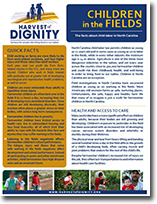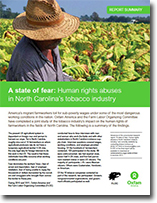The Triangle Food Frenzy – What’s Cool and What’s Not
 Tuesday, August 14, 2012 at 8:39AM by
Tuesday, August 14, 2012 at 8:39AM by  Chris Liu-Beers
Chris Liu-Beers Guest post by Erin Krauss
Food. Mmm…..the most natural of pleasures; melt in your mouth butter, delicate tastes of salt and sugar, coffee and cream…or…over-zealous, raw, freshly chopped, crunchy…....pure nourishment. Food is good, food is fun, and frankly these days, food is COOL. The Triangle can give testament to this fact. Food draws in the crowd - from locals seeking a new menu, to students shopping around for an economical fast fix. Everything from swanky restaurants to corner food trucks has exploded over the last few years in urban centers of central North Carolina, and across the state. Food-lovers are salivating at the variety of choices and all hours of the day you can obtain a taco, dumpling, raw smoothie, or NC BBQ. The recent attention on food has been accompanied by a number of “food movements” advocating for positive changes in our food system over-all; this kind of community action has gained praise and some critique.
A recent article by Sally Kohn in Salon speaks to the contradictory phenomenon of food becoming more and more popular on a national level, while the people who are responsible for growing, processing, and cooking our food, are not. Otherwise they would have fair treatment and fair wages, right? The author argues that the “foody movement” has resulted in a massive trend towards hypersensitivity for the organic, the humane treatment of animals, and the local nature of food as well as health-conscious and environmentally conscious critique of food. Kohn claims that the ironic thing missing in the popularization of cool and fancy foods is a level of genuine concern surrounding the people that make food production happen. In Kohn’s words, “In the food industry, as in America overall, the concerns of low-wage workers tend to get swept under the table...”
Kohn’s critique highlights the importance of a very needed global perspective when it comes to “foody” movements, but let’s not forget the strides we have made in NC and other communities over the last several years. As buy local and support small & organic farms campaigns have gained momentum – so have efforts surrounding environmentally sound agriculture practice, growing consumer consciousness and even some equitable prices that reflect what sustainable food and fair labor practices actually require. Local food movements and other food-awareness efforts have done a good job at educating on alternatives to multinational corporations and big agro-business. Ultimately – whether advocates are pushing for local food or quality food (organic, sustainable, healthy) the common vision often seems to be to strengthen communities over all.
Contrary to Kohn, others argue that a problem lies not in the current focus of food-movements, but rather, what food-movements often lack. While overall, the objective of food-movements are to strengthen our communities, it’s not clear whom exactly it is that we include in our definition of community. A variety of people have a stake in food movements. However, not all the diverse stakeholders are talking together about how they are connected and how to work towards common goals. More often then not, many stakeholders (farmworkers themselves) are simply ignored & excluded from the conversation about how to create a new kind of food-system. Conscientious consumers, restaurant and stores, and small farmers have done well to make a dent in their own spheres. But how could we all work together more effectively and inclusively to make a larger impact on the agricultural machine that is the NC economy?
First, we could all reflect deeply on the fact that most of the 150,000 farmworkers and 28,000 poultry living and workers in our state community do not have a regular seat at the "food movement" table. When have farmworkers been invited to join the local food movements’ conversations? When haven’t they? And why is this so? Thinking about these questions is challenging and requires a social justice perspective that sometimes isolated food campaigns can lack. A social justice perspective means prioritizing inclusive decision making and strategizing, refusing to marginalize groups of people that historically have had the least power and have been exploited the most, and believing that the most affected should lead. If we want food movements to strengthen the whole community we all need to have a frank discussion about who is included in our definition of community, and, more importantly – who is excluded and why.
Second, we can all, no matter who we are, push for changes in the larger NC-food system that we all depend on, whether directly or indirectly by virtue of living here. Organizing new efforts around small & organic farming and socially aware business are invaluable - and we must keep up this good work. Equally important is pushing for real change in the massive, exploitative food-system we have had for so long in this southern state.
If we all make efforts to reflect deeply on how we talk together and who is included in conversation, and if we all push for change in "alternative" and "traditional" food arenas, perhaps by next year, we will have enough diverse stakeholders to make a global food movement that benefits health, environment, local economy, and social and labor rights alike. Perhaps foodies and farmworker advocates will work together and succeed at passing the bill that failed in last year’s legislative session that would provide protections to NC child farmworkers. And maybe with this unified public support, by next year the NC Department of Labor will have leadership that is committed to enforcing NC labor laws and protecting all workers in NC – even farmworkers. Finally, if food movements can grow a stronger social justice perspective – perhaps by next year there won’t be quite as much space between the stakeholders - the “foody”, the small restaurant owner, the small farmer, and the migrant laborer who has worked in NC for decades.
My hope is that someday soon, all of us in the Triangle region and across NC will connect our food pleasures to all people that make food possible. Let us make this food-trend honor the joy that is taste and nourishment, as well as the justice & respect that food-workers deserve. If we create the product, eat the product, make profit from it, or simply live in this state that depends on agriculture - we all have a responsibility in this food chain.
 foodies,
foodies,  organizing,
organizing,  salon,
salon,  wages in
wages in  Guest Post
Guest Post 













